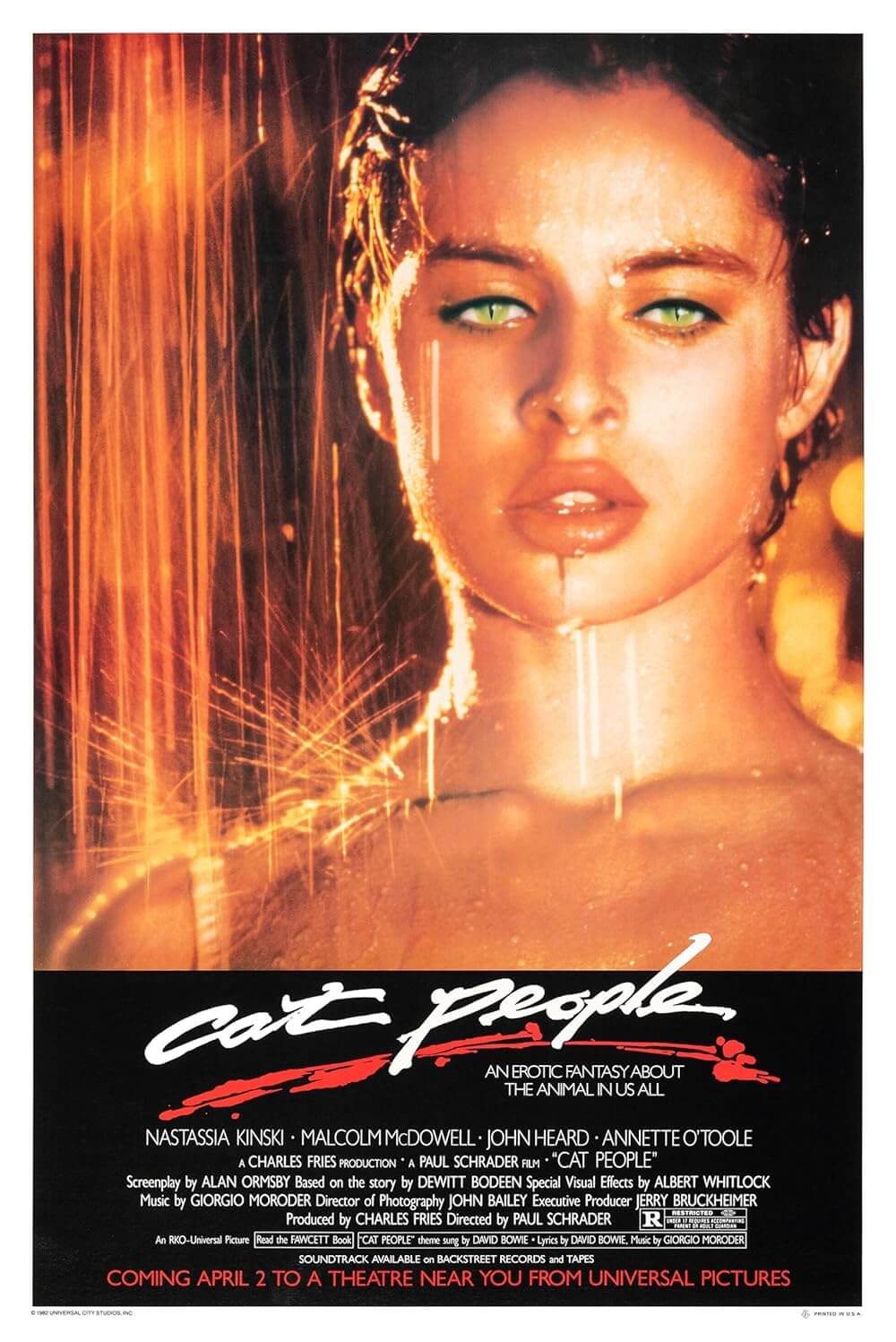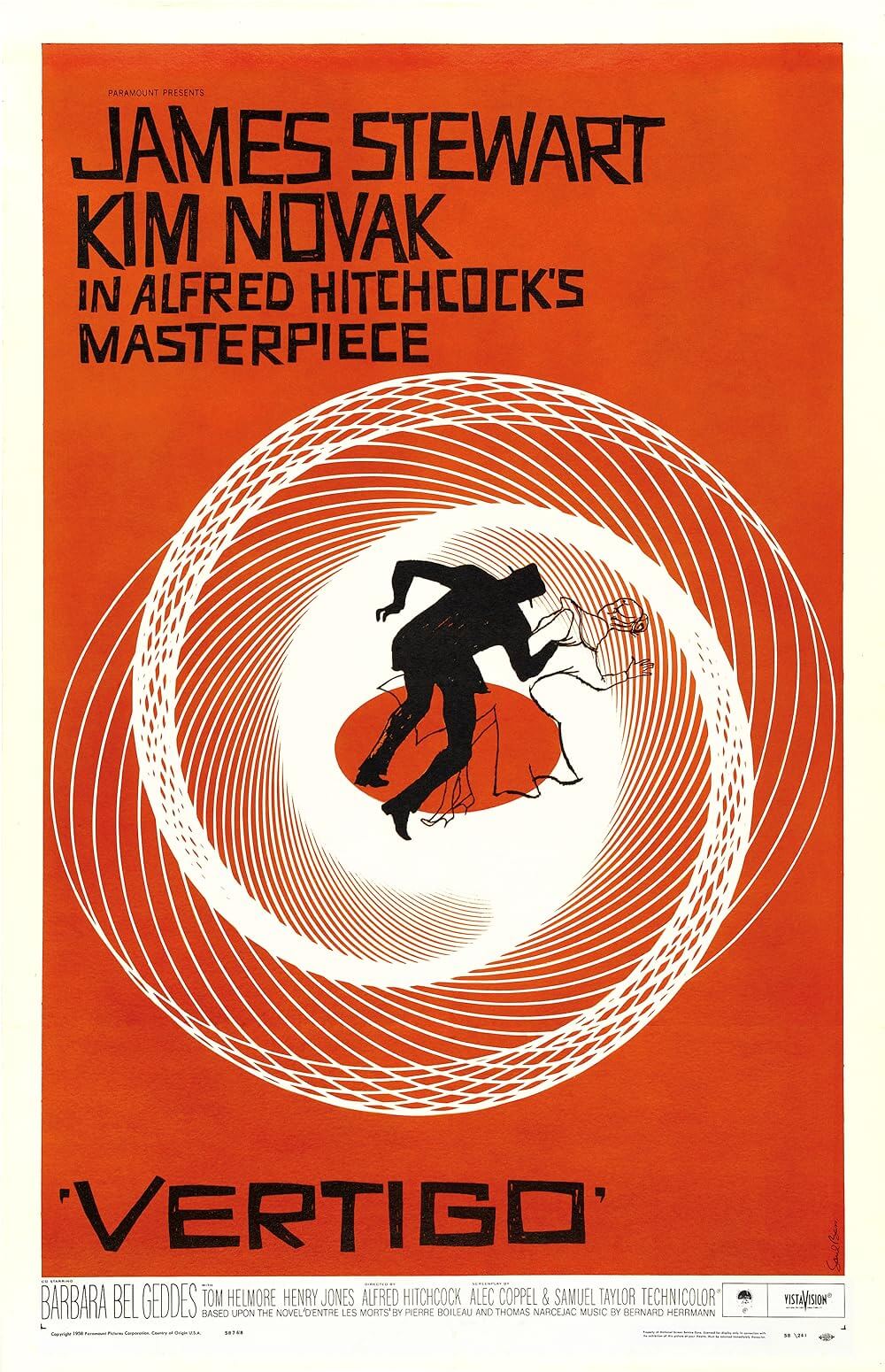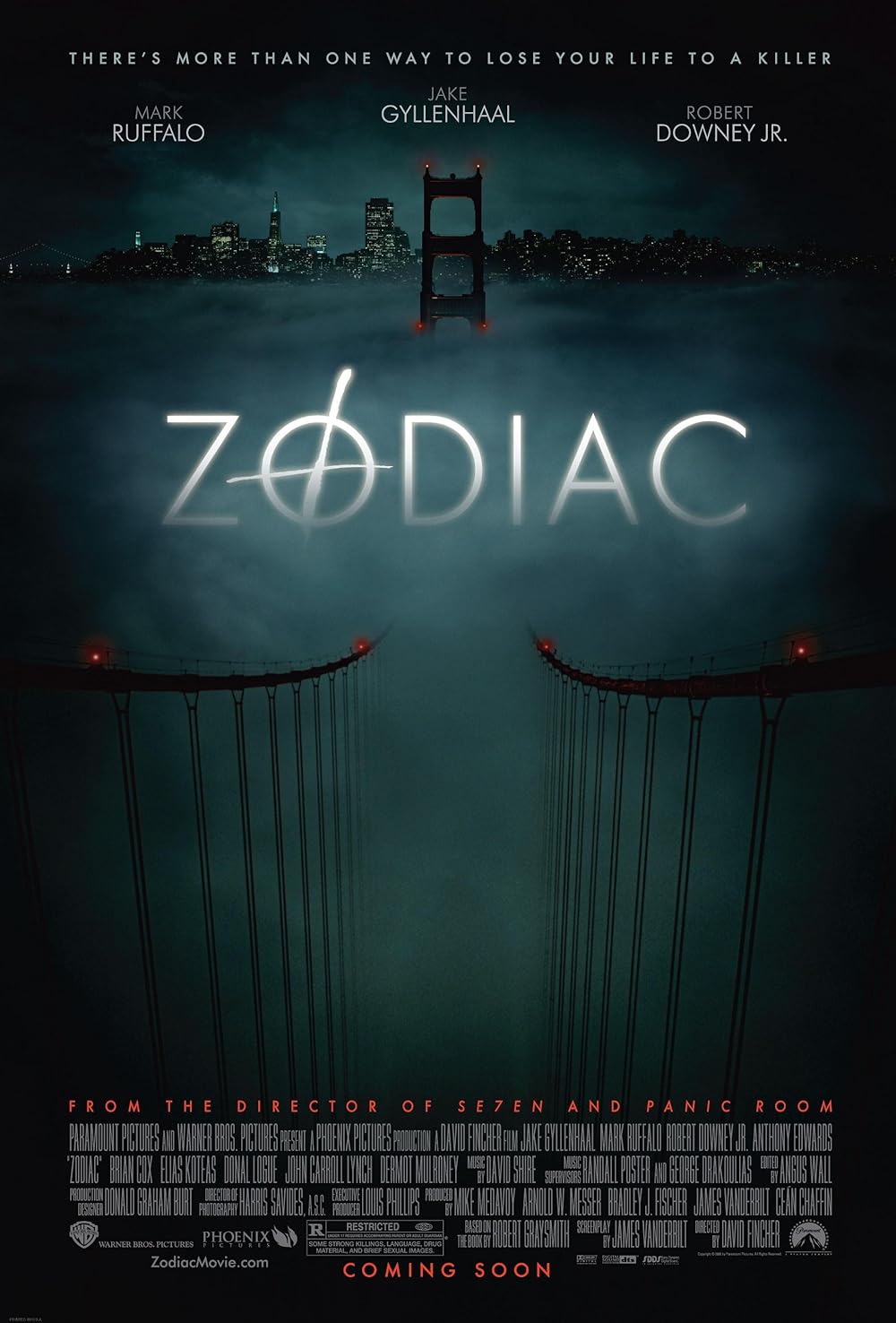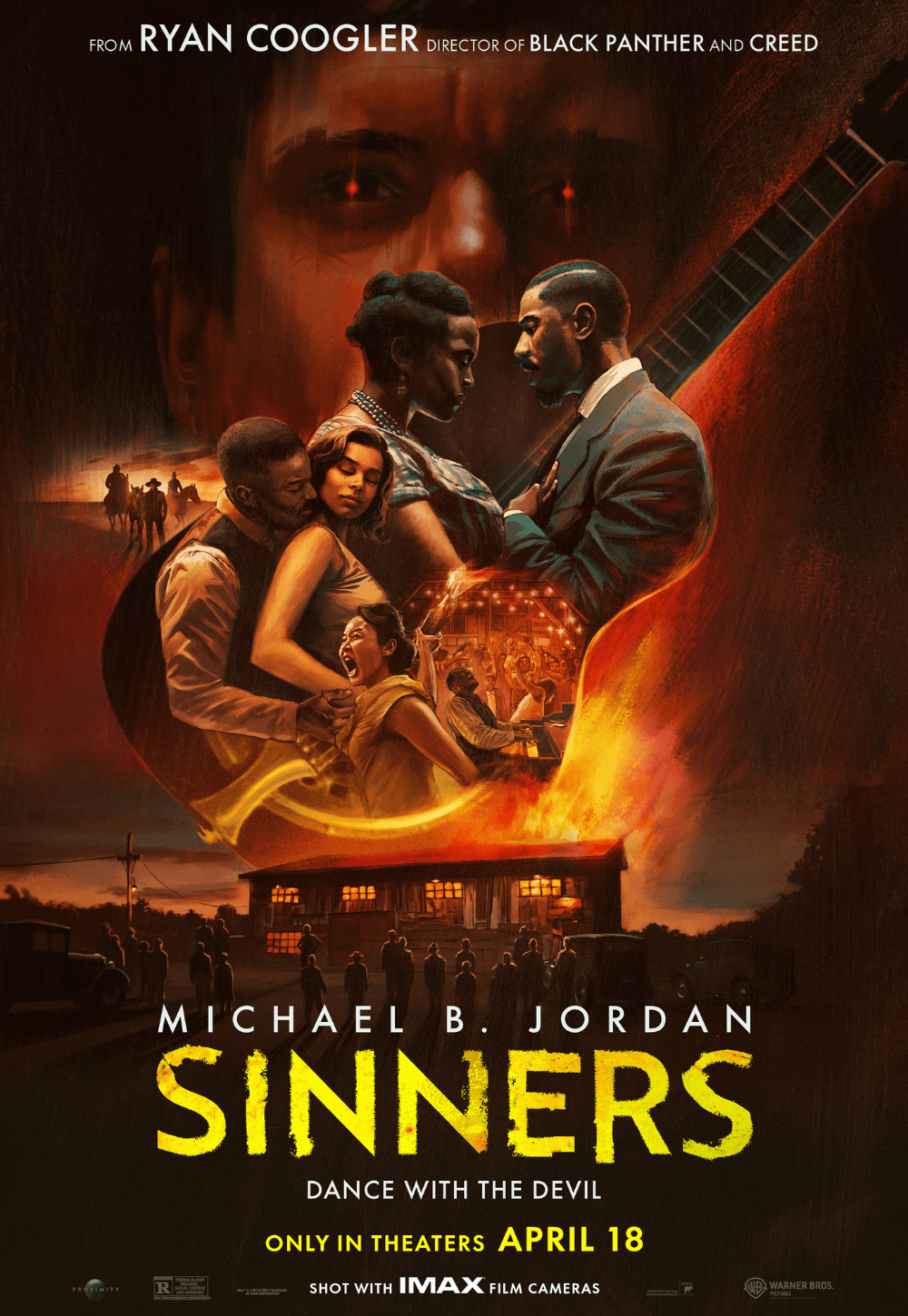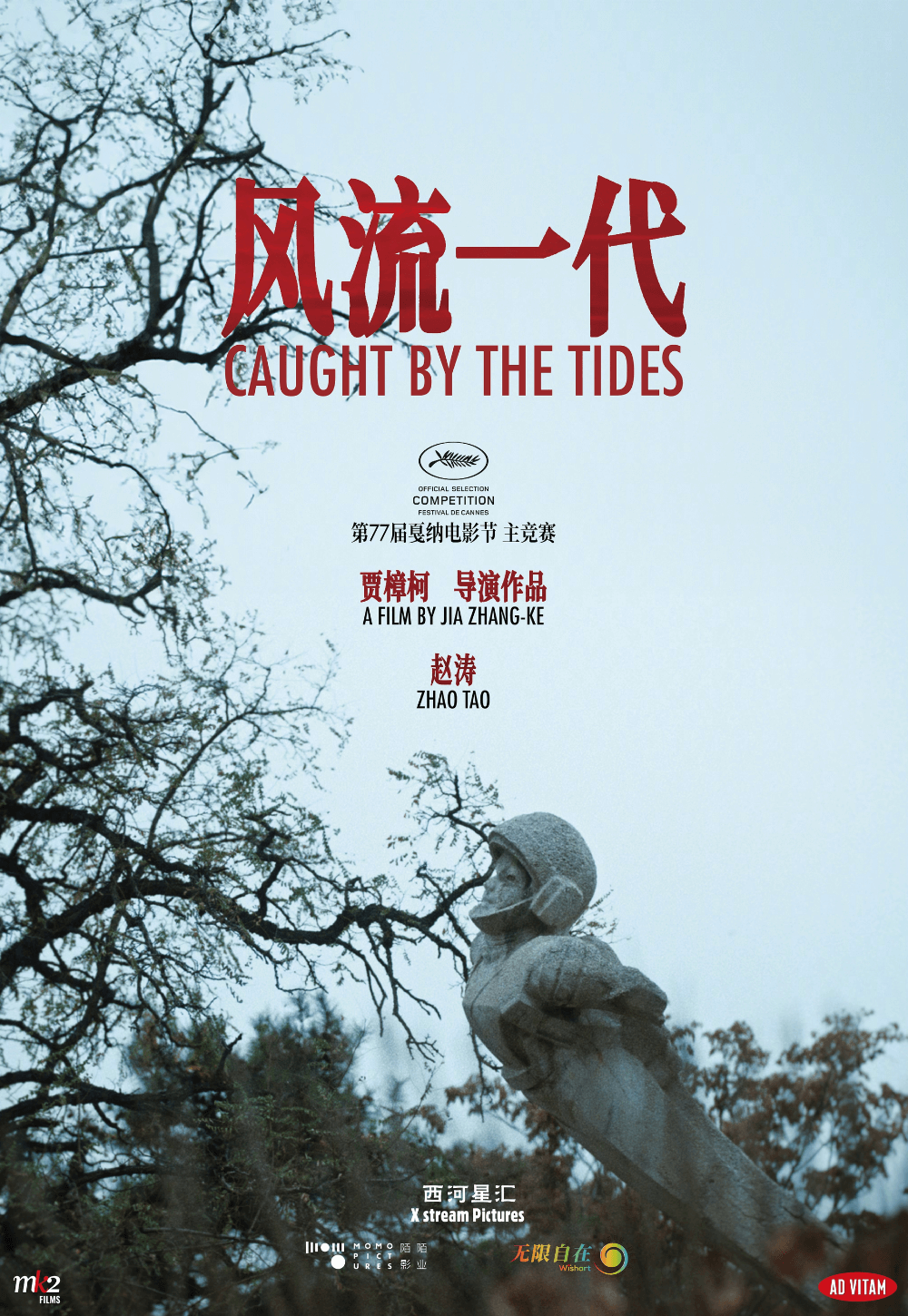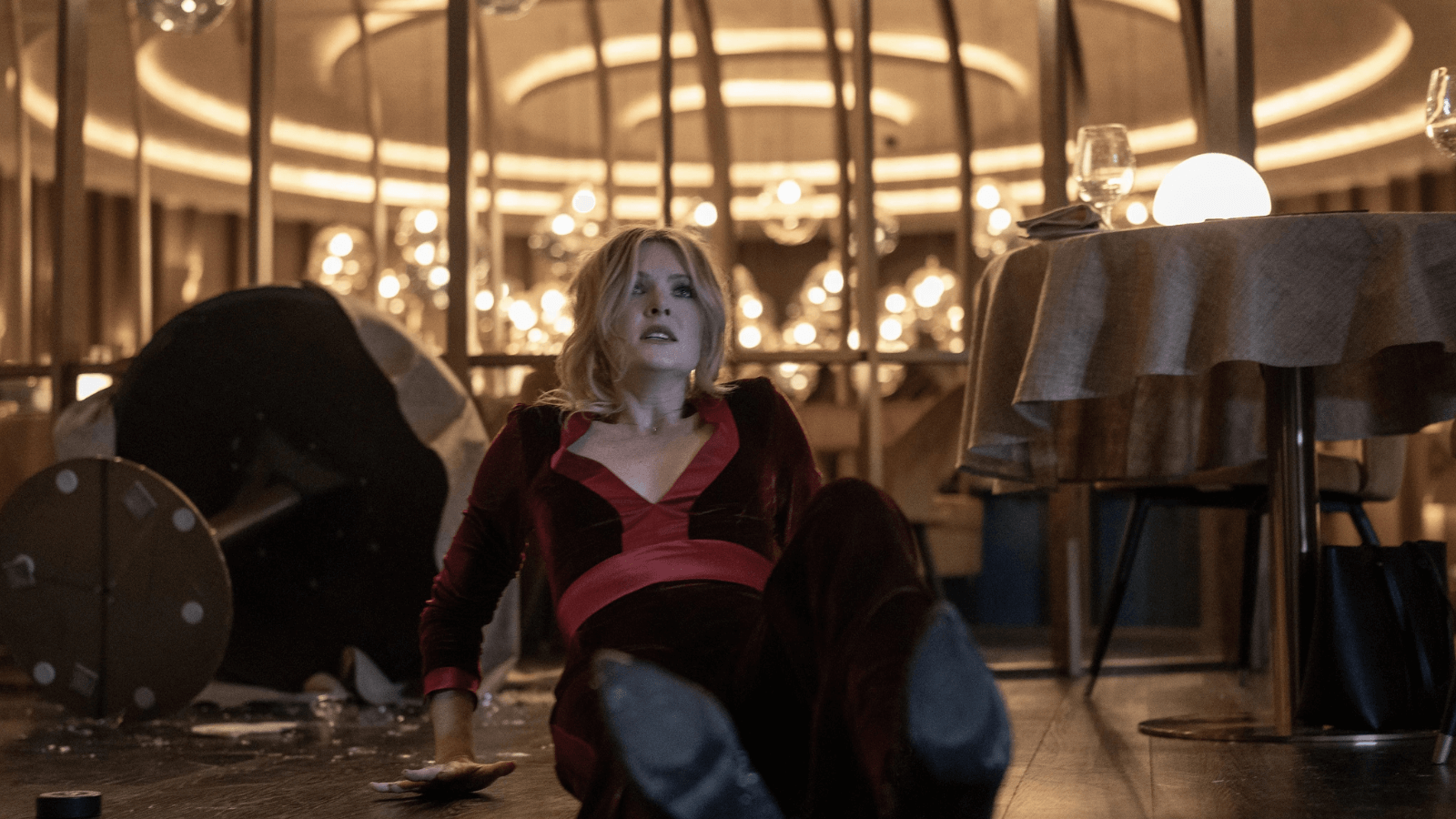
Drop
By Brian Eggert |
Drop is one of those thrillers with a premise so convoluted that, by Jove, it just might work. Violet (Meghann Fahy) and Henry (Brandon Sklenar) meet on a first date at a classy Chicago restaurant. While there, Violet receives anonymous messages on her phone from a (fictional) app called DigiDrop. At first, the sender’s playful use of popular memes and cryptic messages proves annoying. Then, they reveal an elaborate agenda: Someone has taken Violet’s sister and young boy hostage in her home, and unless she follows the instructions that appear on her phone, they will be killed. The unknown sender wants her to destroy the memory card in Henry’s camera and then poison him. Violet attempts to get help, but the sender has the restaurant under surveillance and can see her every move, every deception, and every attempt to signal for help. By the end, Violet must outsmart the bad guys and save her loved ones, not to mention make things work out with Henry.
This compelling setup reminded me of M. Night Shyamalan’s Trap from last year, which is about a concert that doubles as a sting operation to catch a killer. Both involve tense scenarios unfolding across two locations: one in public, the other domestic. Both have a helluva hook, making the marketing department’s job easy. They have terrific trailers that sell their scenarios better than the movies do. But Drop, like Trap, is disappointing, with its confounding leaps in logic and loss of steam somewhere in the second act. However, by then, director Christopher Landon (Freaky, 2020) has invested us in the characters and the outcome; it almost doesn’t matter that the resolution is underwhelming. When it’s all over, Landon has taken the viewers for a ride, and even if every twist and turn isn’t satisfying, it was fun while it lasted.
Written by Jillian Jacobs and Chris Roach, Drop takes a cue from Alfred Hitchcock by involving everyday people in an elaborate political conspiracy (see The Man Who Knew Too Much, 1934 or 1956). The story involves embezzlement and corruption in the mayor’s office. But who cares? It’s a MacGuffin. Violet’s desperate need to protect her son, Toby (Jacob Robinson), and sister, Jen (Violett Beane), is the more immediate danger. The writers also build a backstory for their protagonist, a therapist who narrowly survived an abusive relationship with Toby’s late father. Predictably, Violet’s situation in the restaurant gives her another chance to stand up to someone trying to control her. In the way a lot of movies today depict characters working through personal trauma, Violet, too, must use her situation as a cathartic release from her psychological hangups.
Landon tackles Drop with the flashiest, most self-conscious aesthetics imaginable. Whenever Violet receives a new message, the text floats in large, bold letters in the scene rather than appearing on her actual device, so the viewer can see what she sees. Cinematographer Marc Spicer moves the camera in Dutch tilts and topsy-turvy motions, suggesting the kind of slick approach one might see in a Brian De Palma film, albeit less meticulous. Landon’s work with the actors is more effective. Fahy makes a compelling lead, having to maintain her date while constantly getting notifications on her phone—all while complying with their demands, trying to figure out who in the restaurant could be sending her drops, making a connection with Henry, and worrying about her kid. Sklenar has the easier task, playing the nicest, most understanding guy ever. None of Violet’s erratic behavior fazes him. Elsewhere, Gabrielle Ryan plays a perceptive bartender who has Violet’s back, and Jeffery Self plays the high-energy server, Matt, whose comic-relief presence feels forced.
Drop recalls movies like Phone Booth (2002), Cellular (2004), and Non-Stop (2014), where our hero is coerced into committing crimes by someone on the phone or sending texts. Such movies often start with energy and invention to spare, only to peter out before the ending. But their logline is so irresistible, and they have such potential to be a fun, escapist experience. Yet, they seldom live up to their promise due to clunky writing or an overreliance on technique. Drop features banal characterizations and frequently implausible plot developments. I kept wondering about the restaurant’s piano player, who was poisoned and died in the elevator mid-movie. Did no one find his body and alert the authorities? Minor details like this accumulate, leaving the experience serviceable but ultimately underdeveloped and unsatisfying.
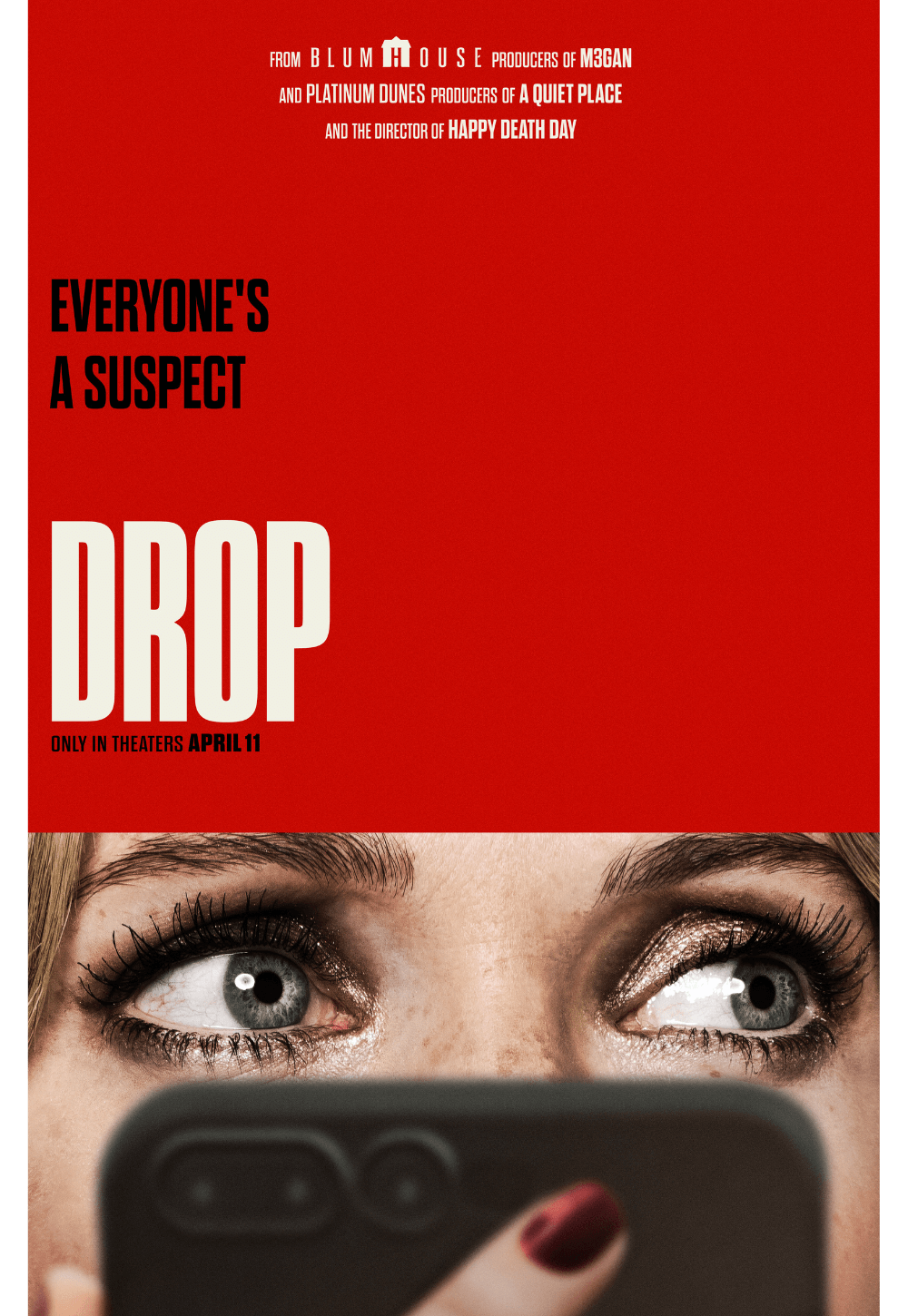
Consider Supporting Deep Focus Review
I hope you’re enjoying the independent film criticism on Deep Focus Review. Whether you’re a regular reader or just occasionally stop by, please consider supporting Deep Focus Review on Patreon or making a donation. Since 2007, my critical analysis and in-depth reviews have been free from outside influence. Becoming a Patron gives you access to exclusive reviews and essays before anyone else, and you’ll also be a member of a vibrant community of movie lovers. Plus, your contributions help me maintain the site, access research materials, and ensure Deep Focus Review keeps going strong.
If you enjoy my work, please consider joining me on Patreon or showing your support in other ways.
Thank you for your readership!
Brian Eggert | Critic, Founder
Deep Focus Review


